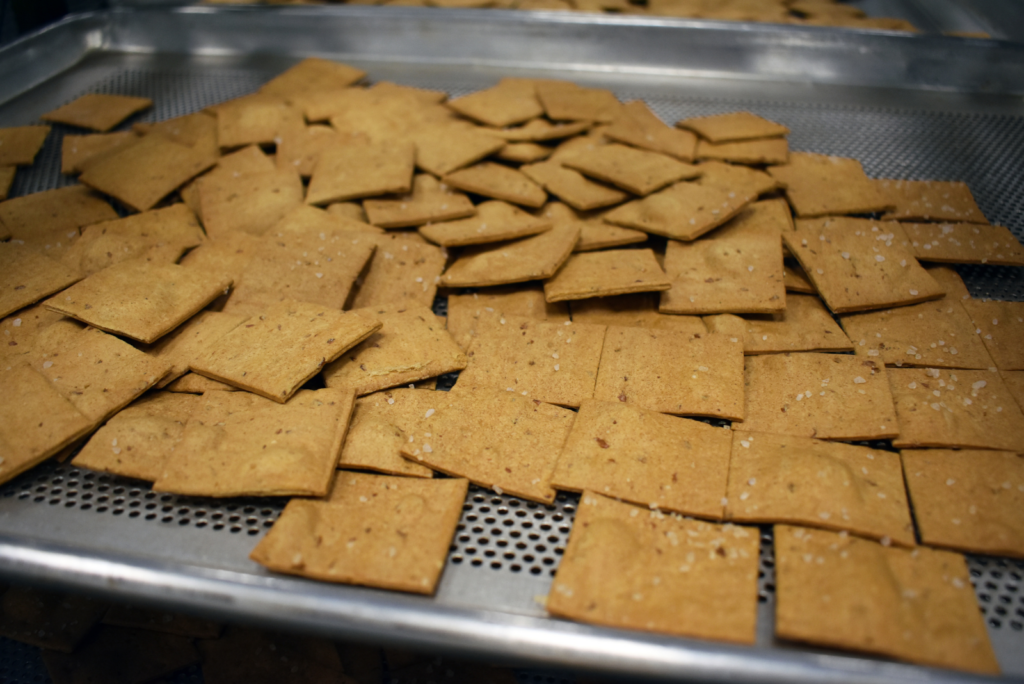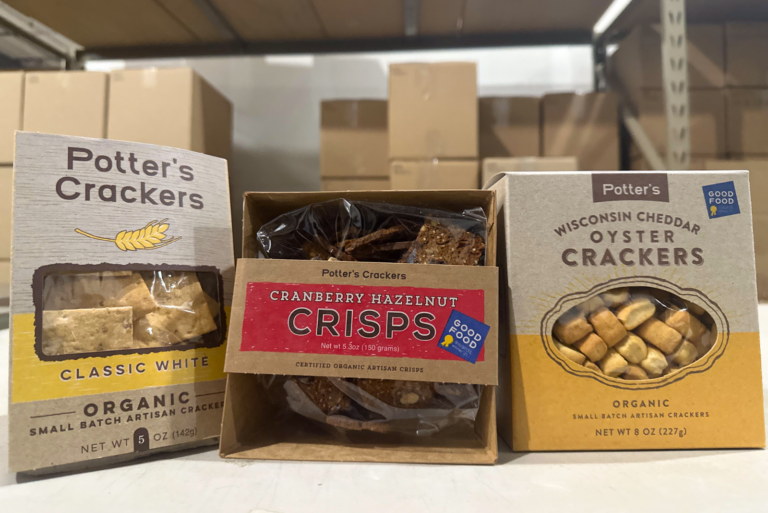Traceability doesn’t just come from the food safety protocols. Potter’s focuses on locality, even as the brand increases its reach and expands its consumer base.
“That idea of small scale, agriculture and organic was something that Nancy created, especially around Wisconsin,” Payne said. “That was something that drew me to Potter’s in the first place, and I want to keep those ideals here. It’s easy to say, ‘We want to scale and not lose track of our history,’ but for me, it’s very much ingrained.”
With organic being a pillar of the brand, 99% of Potter’s products are certified organic. To maintain that status, the bakery is intentional with not only ingredient suppliers but also agricultural partners, focusing on local whenever possible. That includes using organic milk and butter from Wisconsin dairy farms.
“Our wheats, rye flours, oats, flaxseeds,” Payne said, “they’re all grown in Wisconsin, and they’re all organic.”
From a socio-economic perspective, the bakery enjoys the benefit of stable commodity pricing thanks to that proximity. And participating in that supply chain benefits the local agricultural system for generations.
What was born to be little more than a staple in local farmers markets has grown into a brand without borders. It’s what American dreams are made of.
“In five to 10 years, we want to be considered a national brand,” Payne said. “We’re going to watch the consumer trends and build our manufacturing around that. We are a gourmet cracker brand, and we want to be the highest quality cracker that is sought out for entertaining. Nancy and Peter had a brilliant idea: Sell crackers from the cheese state.”
Perhaps Peter Webber, son of Nancy Webber, founder of Potter’s Crackers, was onto something with that second bakery in California. If the growth happens, and with the right automation, Wisconsin is just the beginning, and the sky is truly the limit.
This story has been adapted from the 2023 Innovations Annual of Commercial Baking. Read the full story in the digital edition here.











